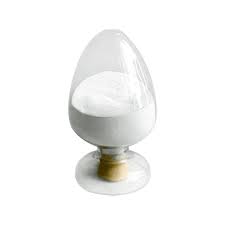Overview[1]
In recent years, people have higher and higher requirements for the performance of information displays, and various information displays have been manufactured, aiming at light weight, thin thickness, low energy consumption, high resolution, fast response, low cost, and easy portability. , full color and other more user-friendly, energy-saving and environmentally friendly directions, making OLED stand out in the flat panel display market. An important part of realizing OLED full-color display is the three primary color luminescent materials of red, blue and green. However, there are obvious deficiencies in the overall performance of blue light materials, which inhibits OLED from achieving full-color display.

Tetrakis(4-bromophenyl)ethylene and its derivatives are easy to synthesize, easy to substitute and have special AIE phenomena. Research on tetrakis(4-bromophenyl)ethylene at home and abroad is currently in the fields of photochemistry, photophysics, and materials. Good research results have been achieved in many fields such as chemistry, polymer chemistry, biochemistry and medicine. For example, tetrakis (4-bromophenyl) ethylene emits fluorescence under the typical non-emitting tetrastyrene core under coordinated solidification in a rigid metal-organic framework, by improving the substitution form of the benzene ring and extending the fluorophore to other rotor chromophores. Basically integrate induced luminescence methods to improve the fluorescence quantum yield of organometallic frameworks based on tetraphenylethylene. Tetraphenylethylene is usually used as raw material and reacts with bromine water under certain conditions to generate tetrakis(4-bromophenyl)ethylene, which improves the fluorescence properties of tetrakis(4-bromophenyl)ethylene.
Preparation[2]
(1) Reflux: In a 250mL two-necked flask, add a certain amount of tetrastyrene and put in a magnetic rotor. Seal the side opening of the flask with a rubber stopper and wrap it tightly with black tape; in the fume hood, fix the flask on the iron rod of the magnetic stirrer, install a three-way pipe on the main mouth of the flask, connect one pipe mouth to a bladder, and the other One pipe is connected to the gas receiving device, which contains saturated sodium thiosulfate solution. The ground connection parts are sealed with vacuum grease and reinforced with buckles. Turn on the magnetic stirrer, open the tee tube at a low speed, slowly inject a certain amount of bromine water with a syringe at the side opening of the flask, and immediately seal the pinhole with black tape. Wrap the outer wall of the flask with tin foil and stir for a certain period of time. During this period, the reaction progress will be tracked by regularly clicking on the plate.
(2) Spot plate: Use a disposable needle to take a trace amount of the reaction mixture, dilute it with THF, use petroleum ether-dichloromethane (20:1) mixed solvent as the developing agent, and use a 2cm×5cm silica gel plate as the spot plate test.
(3) When the reaction stops, convert the reaction device into a reflux device. Add 120 mL of toluene into the reaction bottle, add condensed water, heat, and reflux for 30 minutes to remove all the bromine vapor.
(4) Concentration: Transfer the mixture in the reaction flask to a rotary evaporation flask, connect it to a rotary evaporator, evaporate part of the solvent, and concentrate to about 20 mL.
(5) Chromatographic separation: Pour the pre-prepared petroleum ether-dichloromethane (20:1) mixed solvent into the silica gel powder, stir it into a paste, transfer it to the chromatographic column, and drive out the bubbles. After the developing agent drips out to the surface of the silica gel powder, use a dropper to slowly drip in the concentrated mixture along the inner wall of the chromatographic column. After the addition is completed, slowly add the developing agent. During the separation process, keep the liquid level of the developing agent at all times. Higher than the top of the silica gel powder. During the separation process, the plates were continuously tapped to collect the first separated component.
(6) Rotary evaporation: Collect the separated first component and perform rotary evaporation to obtain a white solid.
(7) Take out the solid, dry it in an oven at 70°C for 24 hours, weigh it, and calculate the yield.
In the process of synthesizing tetrakis(4-bromophenyl)ethylene using tetraphenylethylene bromine water as raw material, the material ratio and reaction time of the reactants tetraphenylethylene and bromine water are both correct for tetrakis(4-bromophenyl)ethylene. The yield of phenyl)ethylene is affected. By controlling the experimental conditions, the reaction yield is the highest when the material ratio of the reactants tetraphenylethylene and bromine water is 1:10 and the reaction time reaches 16 hours.
Main reference materials
[1] Zhao Yanning[1,2], Gu Weijia[2], & Xu Yanhong[1,2]. . Synthesis of tetrakis(4-bromophenyl)ethylene. Journal of Jilin Normal University (Natural Science Edition) (1), 89.
[2] Lu Puliang, & Xu Lubin. (2012). Synthesis of 2-(4-bromophenyl)-3-vinyl-4-hydroxymethyltetrahydrofuran and ditetrahydrofuran lignans. Qingdao Agriculture Journal of University (Natural Science Edition), 29(2), 152-156.
[3] Zhang Lijing. . Design, synthesis and fluorescence properties of tetraphenylethylene compounds and complexes. (Doctoral dissertation, Liaoning Normal University).

 微信扫一扫打赏
微信扫一扫打赏

